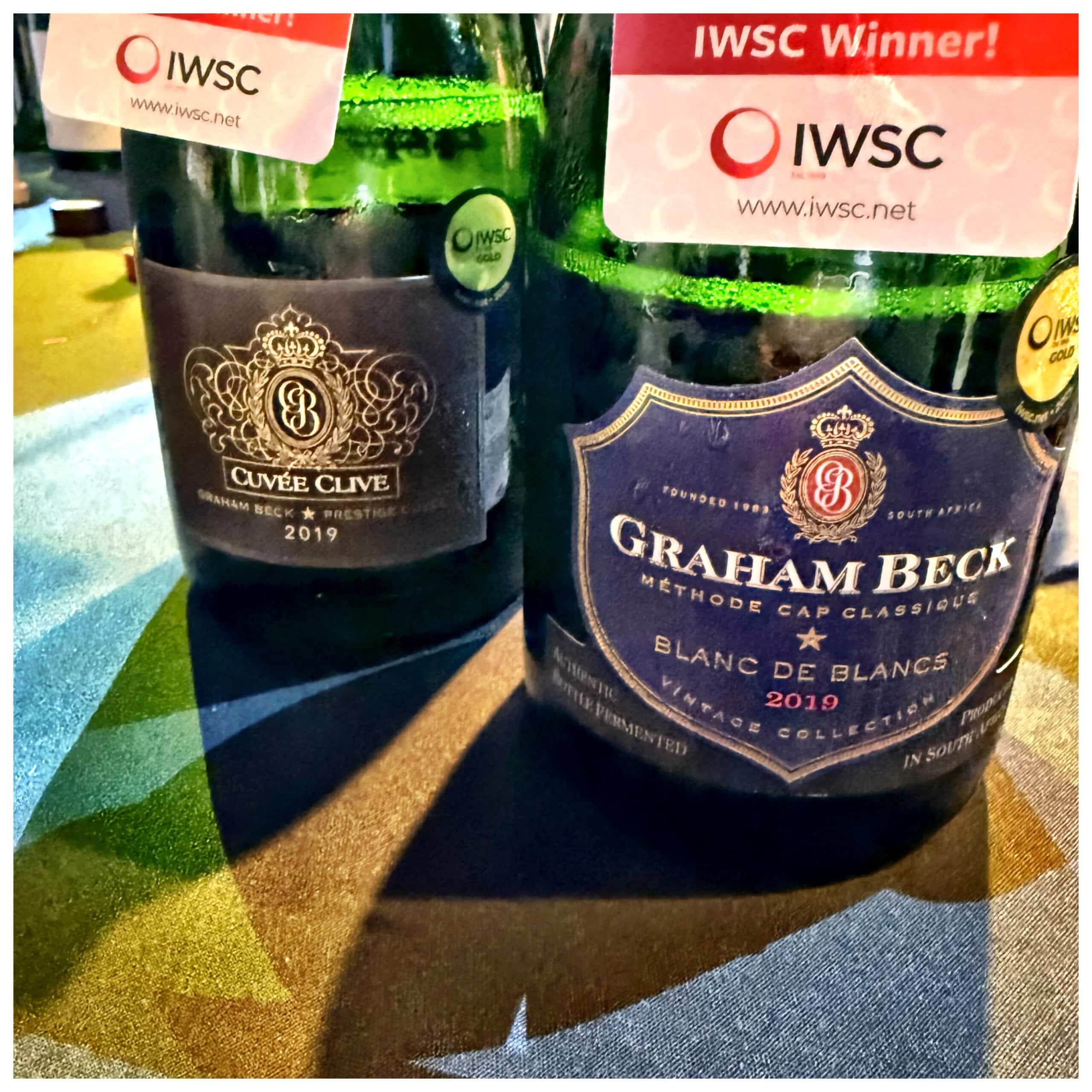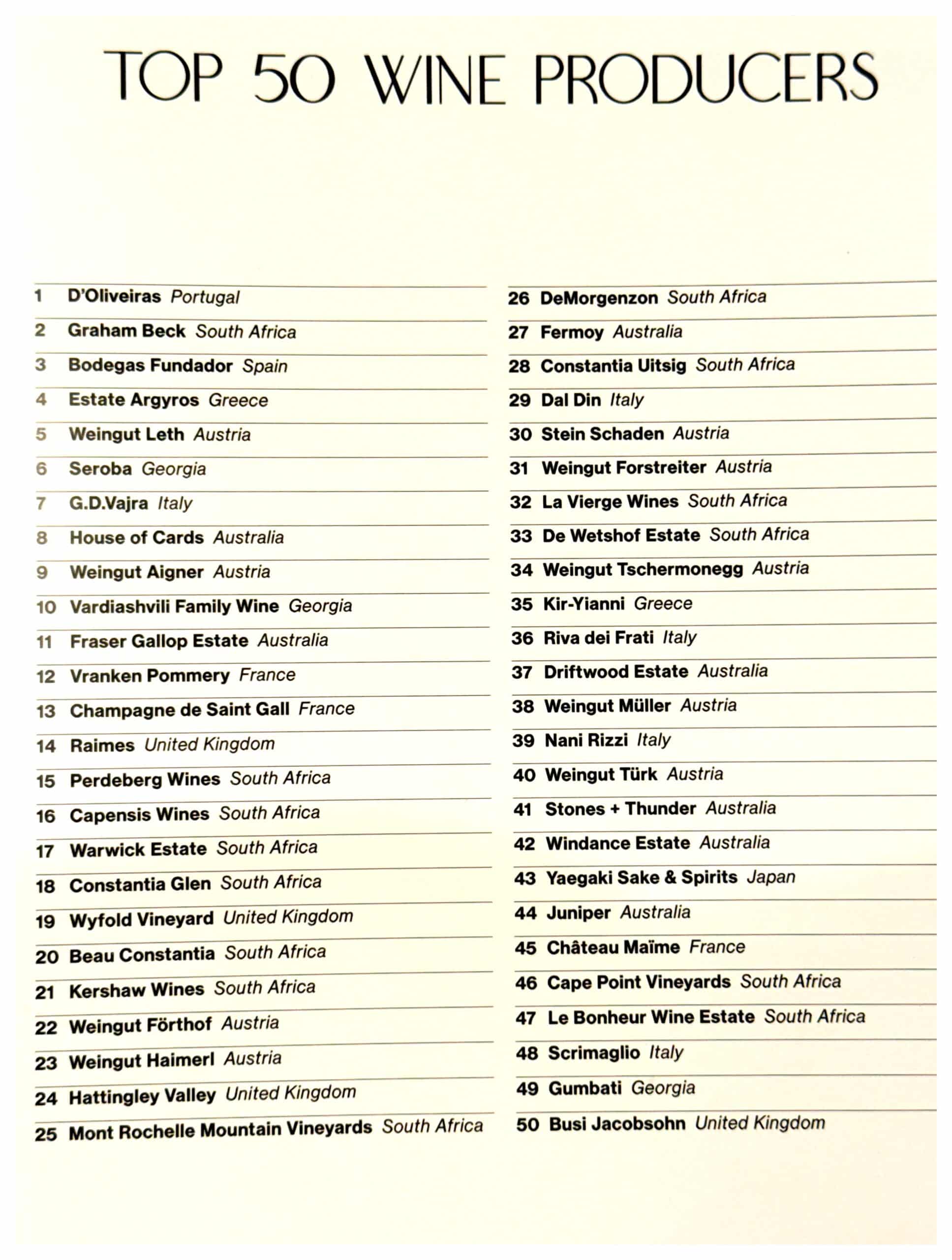Greg Sherwood MW: IWSC Top 50 – SA up, France down
By Greg Sherwood, 19 November 2025

As we approach the end of another eventful year in wine, the written contributions from both Winemag’s columnists and editor seem to get ever more philosophical and reflective. Christian Eedes’ latest piece “When the pros can’t agree – Is SA wine losing its common language?” as well as Michael Fridjhon’s “Has SA wine forgotten the lessons of the SAA Shield?” both identify important themes that are very much worthy of further reflection and deeper discussion, if not from a consumers’ perspective, then certainly from a wider wine industry point of view.
It was Fridjhon’s line – “a properly managed, rigorous judging environment is essential for the health and future of the industry” – that struck a particular chord. As an independent, self-employed commentator, 2025 offered me a rare sweep of judging opportunities both at home and abroad: the IWSC South Africa judging in Cape Town, the Michelangelo Awards, and the main IWSC judging week in London. I also made my debut as a Panel Chair at the WineGB Awards – a first, I hope, rather than a one-off.
Over the previous 25-plus years of working full-time in the wine trade, I’ve always recognised I always understood the professional value of carving out time for judging, paid or unpaid. In the early 2000s, this would consist of regular blind panel tastings for Decanter and other journals, alongside numerous wine industry greats like Jancis Robinson, Stephen Brook, Margaret Rand, Oz Clarke and Steven Spurrier as well as many other illustrious Masters of Wine and Master Sommeliers.
Indeed, aside from the formal rigour of studying for the Master of Wine, I like to think that those formative blind-tasting sessions in my early trade years played a decisive role in shaping the pragmatic, grounded approach I bring to tasting today. I’m also acutely aware that few in the global wine industry are afforded the kind of opportunities I encountered in those days – when London’s fine-wine scene was at its most vibrant, interconnected and influential.
As Eedes also correctly points out, “Instead of obsessing over producers versus critics, curated tastings versus formal competitions, we need hybrid spaces: forums for honest tasting, at the winery, in the trade, around the table, with or without judges. Places where different priorities are acknowledged, ideas exchanged, and standards debated, so that we stop talking past each other and start building the consensus that drives progress.” For me, it was undoubtedly during these numerous deeply immersive blind tastings where the deeper connection of thought, the exchange of experience and the coming together of great wine minds opened doors in my mind that might not have otherwise been opened in a more insular, inward looking wine environment.
In these early days, it was one specific individual – Christelle Guibert – the then Tasting Director at Decanter and head organiser of the Decanter World Wine Awards (DWWA) that invited me to participate in many high-level tastings, both during my Master of Wine studies and after graduating in 2007. Indeed, such is her wine competition expertise and respect in the global wine industry, that she was eventually head-hunted by the owners of the IWSC to take over all wine judging operations to use her knowledge to turn this wine competition into the preeminent global industry leader. Looking back now, years later, one can only say that she has surpassed even the highest expectations the IWSC owners might have had for her at the time.
Of course, I mention the IWSC specifically because just this past week, they held their 2025 grand awards celebration event in London “celebrating the world’s best producers” and for the very first time, announced their IWSC Top 50 Producers for wine and spirits. To qualify, producers must have entered at least two of the last three years (including participation in 2025) and submitted a minimum of three entries per year in that period with additional emphasis placed on higher medals awarded.
With all the blind tasting competition challenges identified in the previously mentioned articles form Eedes and Fridjhon, the IWSC has sought to redefine the judging process and experience for producers and judges, leading the way with an increasing number of well organised “in-situ” panel tastings that are now held in North America, Turkey, Georgia, Austria, Franciacorta and Valdobbiadene DOCG in Italy, China, Margaret River and of course in our very own Cape Town.
This more localised format mixing the best of international judges with the cream of the crop of local judging talent, has proved successful in increasing the scope and participation of local wineries globally together with reducing participatory and logistical costs.
More interestingly, despite the IWSC’s extensive global outreach, South African wineries in particular, have impressively managed to outperform all other regions in the world when considering the total number of wineries listed in the IWSC’s inaugural year-end Top 50 Wine Producers list. These are: South Africa – 14, Austria – 9, Australia – 7, Italy – 5, UK – 4, Georgia – 3, France – 3, Greece – 2, and Spain, Japan and Portugal all with 1 producer listed.
See the full list below.

The 2025 competition judging in South Africa also saw a dedicated day of Cap Classique blind tasting, with an almost inevitable result of Graham Beck’s Cuvée Clive once again coming out as a Trophy winner, helping propel this iconic sparkling wine producer to a highly respectable No.2 runners-up slot on the Top 50 ranking for 2025. Completing the line up included Perdeberg Wines at No.15, Capensis Wines at No.16, Warwick Estate at No.17, Constantia Glen at No.18, Beau Constantia at No.20, Kershaw Wines at No.21, Mont Rochelle Mountain Vineyards at No.25, DeMorgenzon at No.26, Constantia Uitsig at No.28, La Vierge Wines at No.32, De Wetshof at No.33, Cape Point Vineyards at No.46, and finally, Le Bonheur at No.47.
With so many wine producers deciding not to enter any blind wine competitions nowadays, it is incredibly encouraging to see the confidence of so many big-name South African wineries who have decided not to opt out of blind competition or to simply rest on their sighted Tim Atkin MW scores.
As the saying goes, “You’ve got to be in it to win it.” France’s near-total absence from major wine competitions is a case in point: the continued refusal of top Bordeaux, Burgundy and Rhône estates to participate only further erodes their global consumer relevance. Tellingly, Champagne accounted for two of the three IWSC Top 50 places this year, with rosé-driven Château Maïme claiming the third.
We lament daily Bordeaux’s diminishing traction among younger drinkers worldwide. Perhaps the very warnings levelled at the South African industry – about arrogance, insularity and siloed thinking – are now playing out among our French counterparts. At the very least, the South African wine industry should take heed and learn from others’ mistakes.
- Greg Sherwood was born in Pretoria, South Africa, and as the son of a career diplomat, spent his first 21 years traveling the globe with his parents. With a Business Management and Marketing degree from Webster University, St. Louis, Missouri, USA, Sherwood began his working career as a commodity trader. In 2000, he decided to make more of a long-held interest in wine taking a position at Handford Wines in South Kensington, London, working his way up to the position of Senior Wine Buyer over 22 years. Sherwood currently consults to a number of top fine wine merchants in London while always keeping one eye firmly on the South African wine industry. He qualified as the 303rd Master of Wine in 2007.







Comments
0 comment(s)
Please read our Comments Policy here.